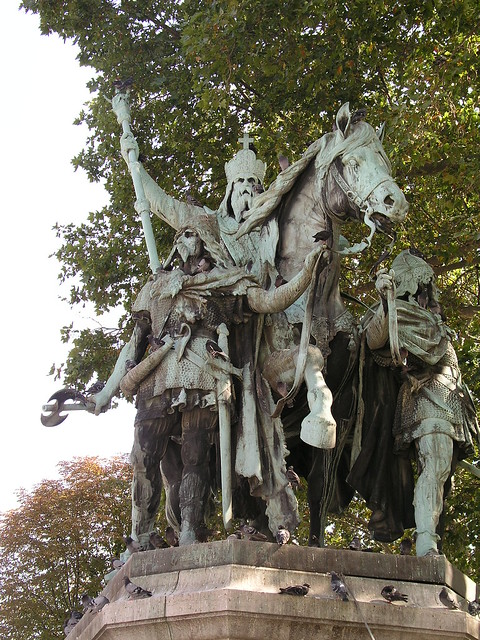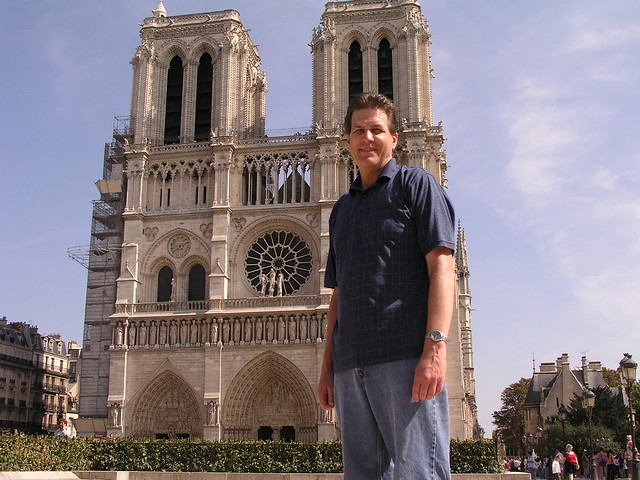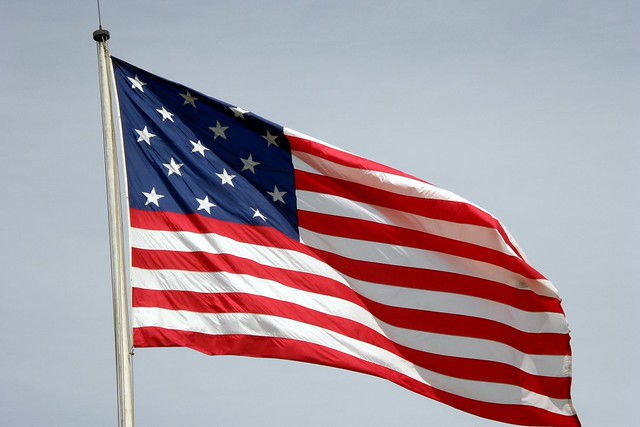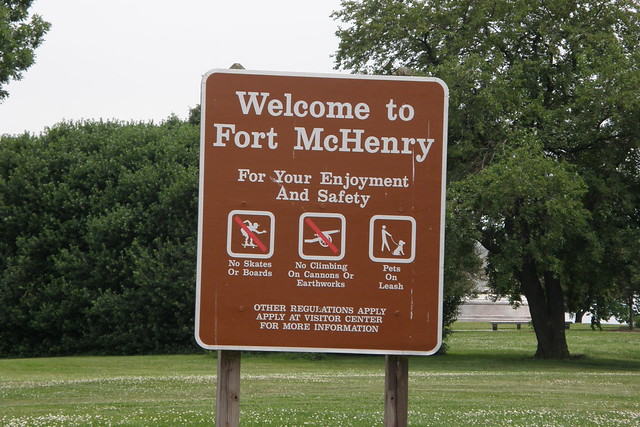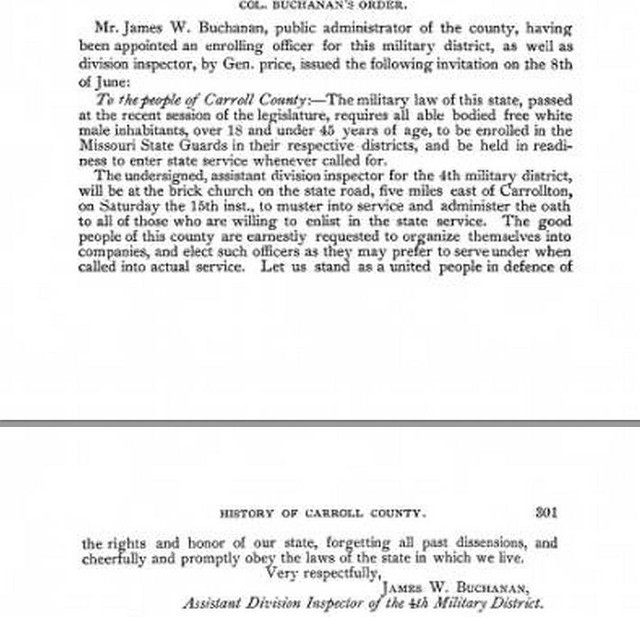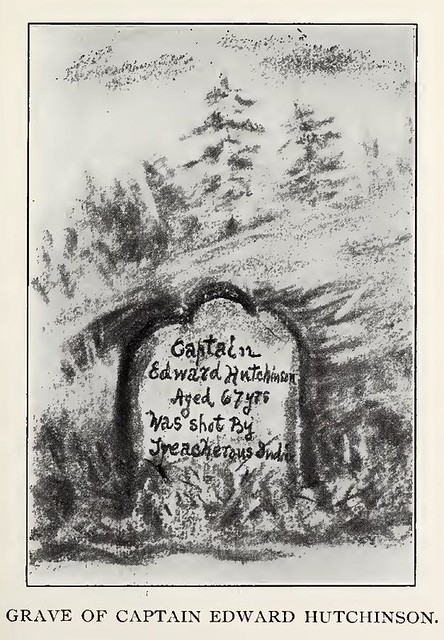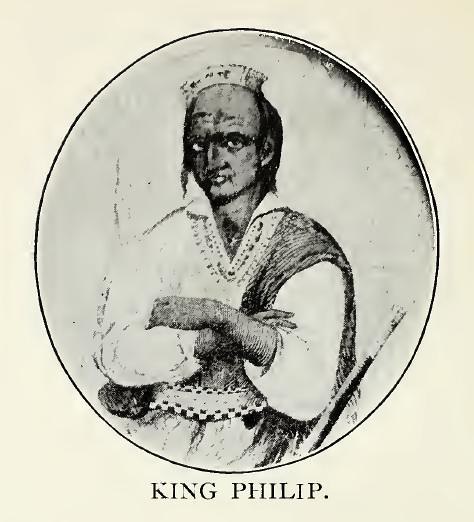Public domain selection, from
Lives of Poor Boys Who Became Famous by Sarah K. Bolton, 1885, pp. 323-341:
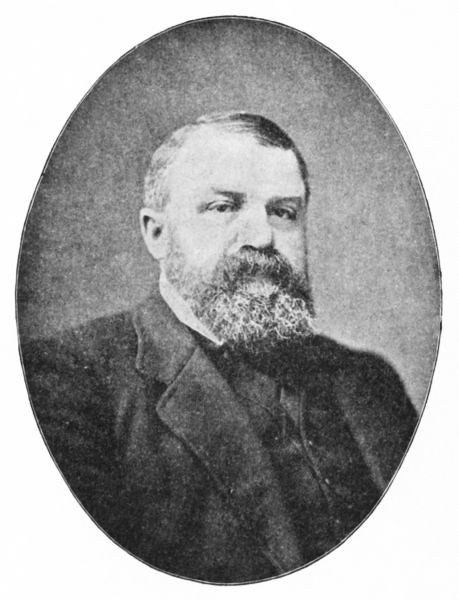
"There's no chance to get in there. There's six thousand persons inside, and two thousand outside."
This was said to Dr. Magoun, President of Iowa College, and myself, after we had waited for nearly an hour, outside of Spurgeon's Tabernacle, in London, in the hope of hearing Mr. Moody preach. Finally, probably through courtesy to Americans, we obtained seats. The six thousand in this great church were sitting as though spellbound. The speaker was a man in middle life, rugged, strong, and plain in dress and manner. His words were so simple that a child could understand them. Now tears came into the eyes of most of the audience, as he told some touching incident, and now faces grew sober as the people examined their own hearts under the searching words. There was no consciousness about the preacher; no wild gesture nor loud tone. Only one expression seemed applicable, "a man dead in earnest."
And who was this man whom thousands came to[324] hear? Not a learned man, not a rich man, but one of the greatest evangelists the world has ever seen. Circumstances were all against him, but he conquered circumstances.
Dwight Lyman Moody was born at Northfield, Mass., Feb. 5, 1837. His father, a stone-mason and farmer, died when the boy was four years old, broken down with reverses in business. His mother was left with seven sons and two daughters, the eldest a boy only fifteen. What happened to this lad was well told by Mr. Moody, a few years since. "Soon after my father's death the creditors came in and took everything. One calamity after another swept over the entire household. Twins were added to the family, and my mother was taken sick. To the eldest boy my mother looked as a stay in her calamity; but all at once that boy became a wanderer. He had been reading some of the trashy novels, and the belief had seized him that he had only to go away, to make a fortune. Away he went. I can remember how eagerly she used to look for tidings of that boy; how she used to send us to the post-office to see if there was a letter from him, and recollect how we used to come back with the sad news, 'No letter!' I remember how in the evenings we used to sit beside her in that New England home, and we would talk about our father; but the moment the name of that boy was mentioned she would hush us into silence. Some nights, when the wind was very high, and the house, which[325] was upon a hill, would tremble at every gust, the voice of my mother was raised in prayer for that wanderer, who had treated her so unkindly. I used to think she loved him better than all of us put together, and I believe she did.
"On a Thanksgiving day she used to set a chair for him, thinking he would return home. Her family grew up, and her boys left home. When I got so that I could write, I sent letters all over the country, but could find no trace of him. One day, while in Boston, the news reached me that he had returned. While in that city, I remember how I used to look for him in every store—he had a mark on his face—but I never got any trace. One day, while my mother was sitting at the door, a stranger was seen coming toward the house, and when he came to the door he stopped. My mother didn't know her boy. He stood there with folded arms and great beard flowing down his breast, his tears trickling down his face. When my mother saw those tears, she cried, 'Oh, it's my lost son!' and entreated him to come in. But he stood still, 'No, mother,' he said, 'I will not come in until I hear that you have forgiven me.' She rushed to the threshold, threw her arms around him, and breathed forgiveness."
Dwight grew to be a strong, self-willed lad, working on the farm, fond of fun rather than of study, held in check only by his devotion to his mother. She was urged to put the children into[326] different homes, on account of their extreme poverty, but by tilling their garden, and doing some work for their neighbors, she managed to keep her little flock together. A woman who could do this had remarkable energy and courage.
What little schooling Dwight received was not greatly enjoyed, because the teacher was a quick-tempered man, who used a rattan on the boys' backs. Years after, he told how a happy change was effected in that school. "After a while there was somebody who began to get up a movement in favor of controlling the school by love. I remember how we thought of the good time we should have that winter, when the rattan would be out of school. We thought we would then have all the fun we wanted. I remember who the teacher was—a lady—and she opened the school with prayer. We hadn't seen it done before, and we were impressed, especially when she prayed that she might have grace and strength to rule the school with love. The school went on several weeks, and we saw no rattan; but at last the rules were broken, and I think I was the first boy to break them. She told me to wait till after school, and then she would see me. I thought the rattan was coming out sure, and stretched myself up in warlike attitude. After school, however, she sat down by me and told me how she loved me, and how she had prayed to be able to rule that school by love, and concluded by saying, 'I want to ask you one favor, that is, if you[327] love me, try and be a good boy;' and I never gave her trouble again."
He was very susceptible to kindness. When an old man, who had the habit of giving every new boy who came into the town a cent, put his hand on Dwight's head, and told him he had a Father in heaven, he never forgot the pressure of that old man's hand.
Farming among Northfield rocks was not exciting work enough for the energetic boy; so with his mother's consent, he started for Boston, when he was seventeen, to look for work. He had the same bitter experience that other homeless boys have. He says, "I went to the post-office two or three times a day to see if there was a letter for me. I knew there was not, as there was but one mail a day. I had not any employment and was very homesick, and so went constantly to the post-office, thinking perhaps when the mail did come in, my letter had been mislaid. At last, however, I got a letter. It was from my youngest sister,—the first letter she ever wrote me. I opened it with a light heart thinking there was some good news from home, but the burden of the whole letter was that she had heard there were pickpockets in Boston, and warned me to take care of them. I thought I had better get some money in hand first, and then I might take care of pickpockets."
The homesick boy finally applied to an uncle, a shoe-dealer, who hesitated much about taking the[328] country lad into his employ. He agreed to do so on the conditions that the boy would heed his advice, and attend regularly the Mount Vernon Church and Sunday-school. The preaching of Dr. Kirk, the pastor, was scholarly and eloquent, but quite above the lad's comprehension. His Sunday-school teacher, Mr. Edward Kimball, was a devoted man, and withal had the tact to win a boy's confidence. One day he came into the store where young Moody worked, and going behind the counter, placed his hand on the boy's shoulder and talked about his becoming a Christian. Such interest touched Dwight's heart, and he soon took a stand on the right side. Years afterward, Moody was the means of the conversion of the son of Mr. Kimball, at seventeen, just his own age at this time.
His earnest nature made him eager to do Christian work; but so poor was his command of language, and his sentences were so awkward, that he was not accepted to the membership of the church for a year after he had made his application. They thought him very "unlikely ever to become a Christian of clear and decided views of gospel truth; still less to fill any extended sphere of public usefulness." Alas! how the best of us sometimes have our eyes shut to the treasures lying at our feet.
He longed for a wider field of usefulness, and in the fall of 1856, when he was nineteen, started for Chicago, taking with him testimonials which secured him a place as salesman in a shoe store. He joined[329] Plymouth Church, and at once rented four pews for the young men whom he intended to bring in. Here, it is said, some of the more cultured assured him that his silence would be more effective for good than his speech! Certainly not encouraging to a young convert.
He offered his services to a mission school as a teacher. "He was welcome, if he would bring his own scholars," they said. The next Sunday, to their astonishment, young Moody walked in at the head of eighteen ragged urchins whom he had gathered from the streets. He distributed tracts among the seamen at the wharfs, and did not fear to go into saloons and talk with the inmates.
Finally he wanted a larger field still, and opened an old saloon, which had been vacated, as a Sunday-school room. It was in the neighborhood of two hundred saloons and gambling-dens! His heart was full of love for the poor and the outcasts, and they did not mind about his grammar. A friend came to see him in these dingy quarters, and found him holding a colored child, while he read, by the dim light of some tallow candles, the story of the Prodigal Son to his little congregation. "I have got only one talent," said the unassuming Moody. "I have no education, but I love the Lord Jesus Christ, and I want to do something for him. I want you to pray for me."
Thirteen years later, when all Great Britain was aflame with the sermons of this same man, he wrote[330] his friend, "Pray for me every day; pray now that the Lord will keep me humble."
Soon the Sunday-school outgrew the shabby saloon, and was moved to a hall, where a thousand scholars gathered. Still attending to business as a travelling salesman, for six years he swept and made ready his Sunday-school room. He had great tact with his pupils, and won them by kindness. One day a boy came, who was very unruly, sticking pins into the backs of the other boys. Mr. Moody patted him kindly on the head, and asked him to come again. After a short time he became a Christian, and then was anxious about his mother, whom Mr. Moody had been unable to influence. One night the lad threw his arms about her neck, and weeping told her how he had stopped swearing, and how he wanted her to love the Saviour. When she passed his room, she heard him praying, "Oh, God, convert my dear mother." The next Sunday he led her into the Sabbath-school, and she became an earnest worker.
He also has great tact with his young converts. "Every man can do something," he says. "I had a Swede converted in Chicago. I don't know how. I don't suppose he was converted by my sermons, because he couldn't understand much. The Lord converted him into one of the happiest men you ever saw. His face shone all over. He came to me, and he had to speak through an interpreter. This interpreter said this Swede wanted to have me give him[331] something to do. I said to myself, 'What in the world will I set this man to doing? He can't talk English!' So I gave him a bundle of little handbills, and put him out on the corner of the greatest thoroughfare of Chicago, and let him give them out, inviting people to come up and hear me preach. A man would come along and take it, and see 'Gospel meeting,' and would turn around and curse the fellow; but the Swede would laugh, because he didn't know but he was blessing him. He couldn't tell the difference. A great many men were impressed by that man's being so polite and kind. There he stood, and when winter came and the nights got so dark they could not read those little handbills, he went and got a little transparency and put it up on the corner, and there he took his stand, hot or cold, rain or shine. Many a man was won to Christ by his efforts."
In 1860, when Moody was twenty-three, he made up his mind to give all his time to Christian work. He was led to this by the following incident. He says, "In the Sunday-school I had a pale, delicate young man as one of the teachers. I knew his burning piety, and assigned him to the worst class in the school. They were all girls, and it was an awful class. They kept gadding around in the schoolroom, and were laughing and carrying on all the while. One Sunday he was absent, and I tried myself to teach the class, but couldn't do anything with them; they seemed farther off than ever from any[332] concern about their souls. Well, the day after his absence, early Monday morning, the young man came into the store where I worked, and, tottering and bloodless, threw himself down on some boxes.
"'What's the matter?' I asked.
"'I have been bleeding at the lungs, and they have given me up to die,' he said.
"'But you are not afraid to die?' I questioned.
"'No,' said he, 'I am not afraid to die; but I have got to stand before God and give an account of my stewardship, and not one of my Sabbath-school scholars has been brought to Jesus. I have failed to bring one, and haven't any strength to do it now.'
"He was so weighed down that I got a carriage and took that dying man in it, and we called at the homes of every one of his scholars, and to each one he said, as best his faint voice would let him, 'I have come to just ask you to come to the Saviour,' and then he prayed as I never heard before. And for ten days he labored in that way, sometimes walking to the nearest houses. And at the end of that ten days, every one of that large class had yielded to the Saviour.
"Full well I remember the night before he went away (for the doctors said he must hurry to the South); how we held a true love-feast. It was the very gate of heaven, that meeting. He prayed, and they prayed; he didn't ask them, he didn't think they could pray; and then we sung, 'Blest be the tie that binds.' It was a beautiful night in June[333] that he left on the Michigan Southern, and I was down to the train to help him off. And those girls every one gathered there again, all unknown to each other; and the depot seemed a second gate to heaven, in the joyful, yet tearful, communion and farewells between these newly-redeemed souls and him whose crown of rejoicing it will be that he led them to Jesus. At last the gong sounded, and, supported on the platform, the dying man shook hands with each one, and whispered, 'I will meet you yonder.'
"From this," says Mr. Moody, "I got the first impulse to work solely for the conversion of men."
When he told his employer that he was going to give up business, he was asked, "Where will you get your support?"
"God will provide for me if he wishes me to keep on, and I shall keep on till I am obliged to stop," was the reply.
To keep his expenses as low as possible, he slept at night on a hard bench in the rooms of the Young Men's Christian Association, and ate the plainest food. Thus was the devoted work of this Christian hero begun. He was soon made city missionary for a time. Then the civil war began, and a camp was established near Chicago. He saw his wonderful opportunity now to reach men who were soon to be face to face with death. The first tent erected was used as a place of prayer. Ministers and friends came to his aid. He labored day and night, some[334]times eight or ten prayer-meetings being held at the same time in the various tents.
He did not desert these men on the field of battle. He was with the army at Pittsburgh Landing, Shiloh, Murfreesboro', and Chattanooga. Nine times, in the interests of the Christian Commission, he visited our men at the front, on his errands of mercy. He tells this incident in a hospital at Murfreesboro'.
"One night after midnight, I was woke up and told that there was a man in one of the wards who wanted to see me. I went to him, and he called me 'chaplain,'—I wasn't a chaplain,—and he said he wanted me to help him die. And I said, 'I'd take you right up in my arms and carry you into the kingdom of God, if I could; but I can't do it; I can't help you to die.'
"And he said, 'Who can?'
"I said, 'The Lord Jesus Christ can. He came for that purpose.' He shook his head and said, 'He can't save me; I have sinned all my life.'
"And I said, 'But he came to save sinners.' I thought of his mother in the north, and I knew that she was anxious that he should die right, and I thought I'd stay with him. I prayed two or three times, and repeated all the promises I could, and I knew that in a few hours he would be gone. I said I wanted to read him a conversation that Christ had with a man who was anxious about his soul. I turned to the third chapter of John. His eyes were riveted on me, and when I came to the fourteenth[335] and fifteenth verses, he caught up the words, 'As Moses lifted up the serpent in the wilderness, even so must the Son of man be lifted up: that whosoever believeth in him should not perish, but have eternal life.'
"He stopped me, and said, 'Is that there?' I said, 'Yes;' and he asked me to read it again, and I did so. He leaned his elbows on the cot and clasped his hands together, and said, 'That's good; won't you read it again?' I read it the third time, and then went on with the rest of the chapter. When I finished his eyes were closed, his hands were folded, and there was a smile on his face. Oh, how it was lit up! What a change had come over it. I saw his lips quiver, and I leaned over him, and heard in a faint whisper, 'As Moses lifted up the serpent in the wilderness, so must the Son of man be lifted up: that whosoever believeth on him should not perish, but have eternal life.'
"He opened his eyes and said, 'That's enough; don't read any more.' He lingered a few hours, and then pillowed his head on those two verses, and went up in one of Christ's chariots and took his seat in the kingdom of God."
On the 28th of August, 1862, Mr. Moody married Miss Emma C. Revell, a most helpful assistant in his meetings, and a young lady of noble character. A daughter and a son came to gladden their simple cottage, and there was no happier home in all Chicago. One morning he said to his wife, "I have[336] no money, and the house is without supplies. It looks as if the Lord had had enough of me in this mission work, and is going to send me back again to sell boots and shoes." But very soon two checks came, one of fifty dollars for himself, and another for his school. Six years after his marriage, his friends gave him the lease of a pleasant furnished house.
This home had a welcome for all who sought the true way to live. One day a gentleman called at the office, bringing a young man who had recently come out of the penitentiary. The latter shrunk from going into the office, but Mr. Moody said, "Bring him in." Mr. Moody took him by the hand, told him he was glad to see him, and invited him to his house. When the young man called, Mr. Moody introduced him as his friend. When his little daughter came into the room, he said, "Emma, this is papa's friend." She went up and kissed him, and the man sobbed aloud.
When she left the room, Mr. Moody said, "What is the matter?"
"Oh sir," was the reply, "I have not had a kiss for years. The last kiss I had was from my mother, and she was dying. I thought I would never have another kiss again."
No wonder people are saved from sin by visiting a home like this!
In 1863, those who had been converted under this beloved leader wanted a church of their own[337] where they could worship together. A building was erected, costing twenty thousand dollars. Four years later, Mr. Moody was made President of the Young Men's Christian Association, and Farwell Hall was speedily built.
He was loved and honored everywhere. Once he was invited to the opening of a great billiard hall. He saw the owners, and asked if he might bring a friend. They said yes, but asked who he was. Mr. Moody said it wasn't necessary to tell, but he never went without him. They understood his meaning, and said, "Come, we don't want any praying."
"You've given me an invitation, and I am going to come," he replied.
"But if you come, you needn't pray."
"Well, I'll tell you what we'll do," was the answer; "we'll compromise the matter, and if you don't want me to come and pray for you when you open, let me pray for you both now," to which they agreed.
Mr. Moody prayed that their business might go to pieces, which it did in a very few months. After the failure, one of the partners determined to kill himself; but when he was about to plunge the knife into his breast, he seemed to hear again the words of his dying mother, "Johnny, if you get into trouble, pray." That voice changed his purpose and his life. He prayed for forgiveness and obtained it.
In 1871, the terrible fire in Chicago swept away[338] Moody's home and church. Two years later, having been invited to Great Britain by two prominent Christian men, he decided to take his friend, Mr. Ira D. Sankey, who had already won a place in the hearts of the people by his singing, and together they would attempt some work for their Lord. They landed in Liverpool, June 17. The two friends who had invited them were dead. The clergy did not know them, and the world was wholly indifferent. At their first meeting in York, England, only four persons were present, but Mr. Moody said it was one of the best meetings they ever held. They labored here for some weeks, and about two hundred were converted.
From here they went to Sunderland and Newcastle, the numbers and interest constantly increasing. Union prayer meetings had been held in Edinburgh for two months in anticipation of their coming. When they arrived, two thousand persons crowded Music Hall, and hundreds were necessarily turned away. As a result of these efforts, over three thousand persons united with the various churches. In Dundee over ten thousand persons gathered in the open air, and at Glasgow nearly thirty thousand, Mr. Moody preaching from his carriage. The press reported all these sermons, and his congregations were thus increased a hundred-fold all over the country. The farmer boy of Northfield, the awkward young convert of Mount Vernon Church, Boston, had become famous. Scholarly[339] ministers came to him to learn how to influence men toward religion. Infidels were reclaimed, and rich and poor alike found the Bible precious, from his simple and beautiful teaching.
In Ireland the crowds sometimes covered six acres, and inquiry meetings lasted for eight hours. Four months were spent in London, where it is believed over two and a half million persons attended the meetings.
Mr. Moody had been fearless in his work. When a church member who was a distiller became troubled in conscience over his business, he came and asked if the evangelist thought a man could not be an honest distiller.
Mr. Moody replied, "You should do whatever you do for the glory of God. If you can get down and pray about a barrel of whiskey, and say when you sell it, 'O Lord God, let this whiskey be blessed to the world,' it is probably honest!"
On his return to America, Mr. Moody was eagerly welcomed. Philadelphia utilized an immense freight depot for the meetings, putting in it ten thousand chairs, and providing a choir of six hundred singers. Over four thousand conversions resulted. In New York the Hippodrome was prepared by an expenditure of ten thousand dollars, and as many conversions were reported here. Boston received him with open arms. Ninety churches co-operated in the house-to-house visitation in connection with the meetings, and a choir of two thousand singers was[340] provided. Mr. Moody, with his wonderful executive ability and genius in organizing, was like a general at the head of his army.
Chicago received him home thankfully and proudly, as was her right. A church had been built for him during his absence, costing one hundred thousand dollars.
For the past ten years his work has been a marvel to the world and, doubtless, to himself. Great Britain has been a second time stirred to its centre by his presence. His sermons have been scattered broadcast by the hundreds of thousands. He receives no salary, never allowing a contribution to be taken for himself, but his wants have been supplied. A pleasant home at his birthplace, Northfield, has been given him by his friends, made doubly dear by the presence of his mother, now over eighty years old. He has established two schools here, one for boys and another for girls, with three hundred pupils, trained in all that ennobles life.
The results from Mr. Moody's work are beyond computing. In his first visit to London a noted man of wealth was converted. He at once sold his hunting dogs and made his country house a centre of missionary effort. During Mr. Moody's second visit the two sons at Cambridge University professed Christianity. One goes to China, having induced some other students to accompany him as missionaries; the other, just married to a lord's daughter, has begun mission work among the slums in the East End of London.[341]
The work of such a life as Mr. Moody's goes on forever. His influence will be felt in almost countless homes after he has passed away from earth. He has wrought without means, and with no fortuitous circumstances. He is a devoted student of the Bible, rising at five o'clock for study in some of his most laborious seasons. He is a man consecrated to a single purpose,—that of winning souls.
Mr. Moody died at his home at East Northfield, Mass., at noon, Friday, December 22, 1899. He was taken ill during a series of meetings at Kansas City, a few weeks previously, and heart disease resulted from overwork. He was conscious to the last. He said to his two sons who were standing by his bedside: "I have always been an ambitious man, not ambitious to lay up wealth, but to leave you work to do, and you're going to continue the work of the schools in East Northfield and Mount Hermon and of the Chicago Bible Institute." Just as death came he awoke as if from sleep and said joyfully, "I have been within the gate; earth is receding; heaven is opening; God is calling me; do not call me back," and a moment later expired. He was buried Tuesday, December 26, at Round Top, on the seminary grounds, where thousands have gathered yearly at the summer meetings conducted by the great evangelist.
illus-323
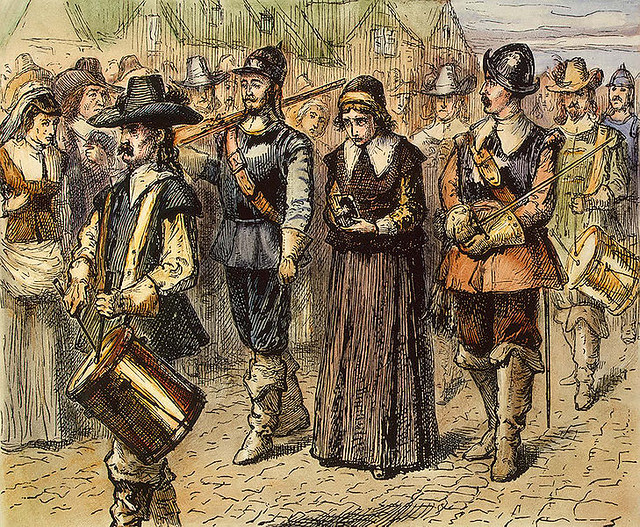 "Mary Dyer led to execution on Boston Common, 1 June 1660" (public domain, unknown artist)
May 21, 1669, Samuel Dyer, son of William & Mary Dyer and my 8th-great-grandfather (he married Anne Hutchinson, the granddaughter of Anne Marbury Hutchinson) is made Conservator of the Peace at Kingstown, RI.
May 21, 1820 Aucelia Ann [Angeline] Horton [27 2g] is born in Hector, Schuyler County, New York
"Mary Dyer led to execution on Boston Common, 1 June 1660" (public domain, unknown artist)
May 21, 1669, Samuel Dyer, son of William & Mary Dyer and my 8th-great-grandfather (he married Anne Hutchinson, the granddaughter of Anne Marbury Hutchinson) is made Conservator of the Peace at Kingstown, RI.
May 21, 1820 Aucelia Ann [Angeline] Horton [27 2g] is born in Hector, Schuyler County, New York
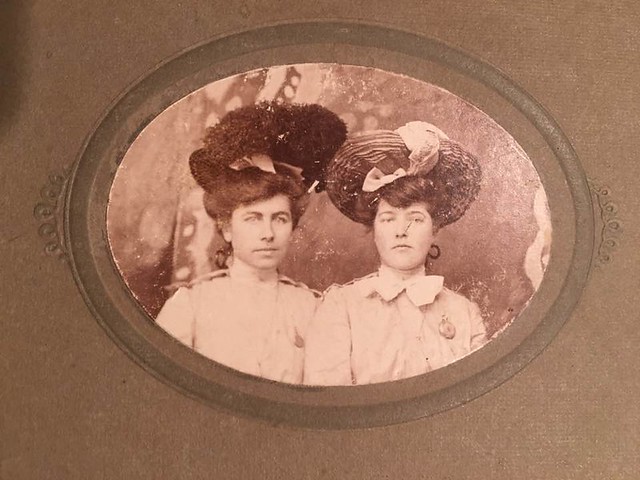 May 21, 1885 Nellie May Horn, grandaunt, sister of grandfather Frank Horn, is born. Nellie is on the left.
May 21, 1885 Nellie May Horn, grandaunt, sister of grandfather Frank Horn, is born. Nellie is on the left.
